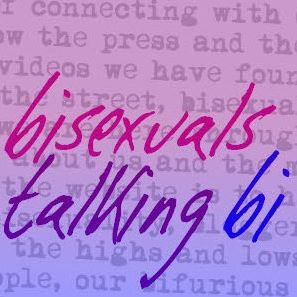Trigger Warning: Rape, Suicide, AbuseI’ve had depression for…

Trigger Warning: Rape, Suicide, Abuse
I’ve had depression for most of my life. I have a diagnosis of Borderline Personality Disorder and Post Traumatic Distress Syndrome. But chronic anxiety was something new to me; until 2014, I’d never experienced it. Anxiety for me wasn’t simply feeling nervous or on edge. Anxiety felt like a blazing fire behind me, and barrels of oil around me, just waiting to explode. Anxiety makes me want to run as fast as I can. It makes me grind my teeth and clench my fists.
I’m invited to give a talk for a panel on LGBT hate crime at a small London police station. I’m surrounded by white police officers, most of whom are wearing body armour. Multiple radios crackle on the table as I clear my throat. I speak about racism of the police, of how biphobia is different to homophobia. There is a strange silence around me. I feel very nervous, but once I start talking I don’t stop until all I’ve wanted to say is done. The police officers are positive – they ask a lot of questions that show how little they now about biphobia. I’m happy to answer them with a smile.
I was raped in 2014. It was not a first for me. I am a survivor of childhood sexual abuse, which carried on into adulthood and only ended when I ran away aged 22. Shortly after the assault, I got sick. I had severe abdominal pains that landed me in hospital twice. The first of these admissions into Casualty happened on the first day of my new job. I lost my job whilst in hospital. I also had a breakdown. Everything seemed to be happening at once. Chronic anxiety shoved its way into my life, and it hasn’t left.
I lead a workshop for the British Psychological Society on mental health and LGBT people. I print out webpages from a few organisations who claim they can help. Most of these pages only ever use the word Gay. Any illustrations are of white people. Bisexuals are never mentioned. People of colour are never mentioned. Intersections of oppression are ignored. I ask the group to look at the sheets and tell the others what they want to see changed; how these organisations could do better. The participants have lots of ideas. I’m happy to see their enthusiasm. As soon as the workshop ends, my stomach bunches into painful knots. I want to hide in a corner. I do exactly that until someone I know spots me.
I blame myself some days for being raped. I feel like I should have known what to do. I should have been able to stop it. I should have pushed them away. I shouldn’t have been frozen in place. I shouldn’t have waited until they left and I knew I was safe before I started crying. Anxiety makes it difficult to breathe when I think that way. Anxiety makes me want to step in front of a bus. Somehow I keep on living.
Twitter and Tumblr have been lifelines for me; when I was in hospital, it kept me in touch with people I know who live thousands of miles away. Tumblr in particular lets me see images of people similar to me, all of whom seem to live in the U.S. Twitter is great, but it is also chock full of mean people who slip into my mentions with racist, biphobic and sexist trash. My block hand is strong. But my anxiety is stronger. I dread clicking on the little bird symbol most days. Sometimes I want to smash my computer into pieces. The only thing stopping me is knowing I wouldn’t be able to watch Steven Universe otherwise.
I was a survivor before I started writing this. I’m a survivor when I speak in front of hundreds of people. Reading my smutty stories out loud in the past has prepared me well for public speaking. But when I’m alone, the anxiety barges in to the front of my mind. When I’m in crowds, I want to disappear into the shadows. Bisexual activism makes me feel like a confident, competent human. It also fills me with despair when I see how aggressive it makes (mostly lesbian and gay) people. I stand on the edge of a knife, trying to balance the positive things my activism can do, with the hatred it exposes me to. I feel anxiety pushing me on to the blade.
I’m invited to speak at Totnes Pride in Devon. I accept without hesitation.
